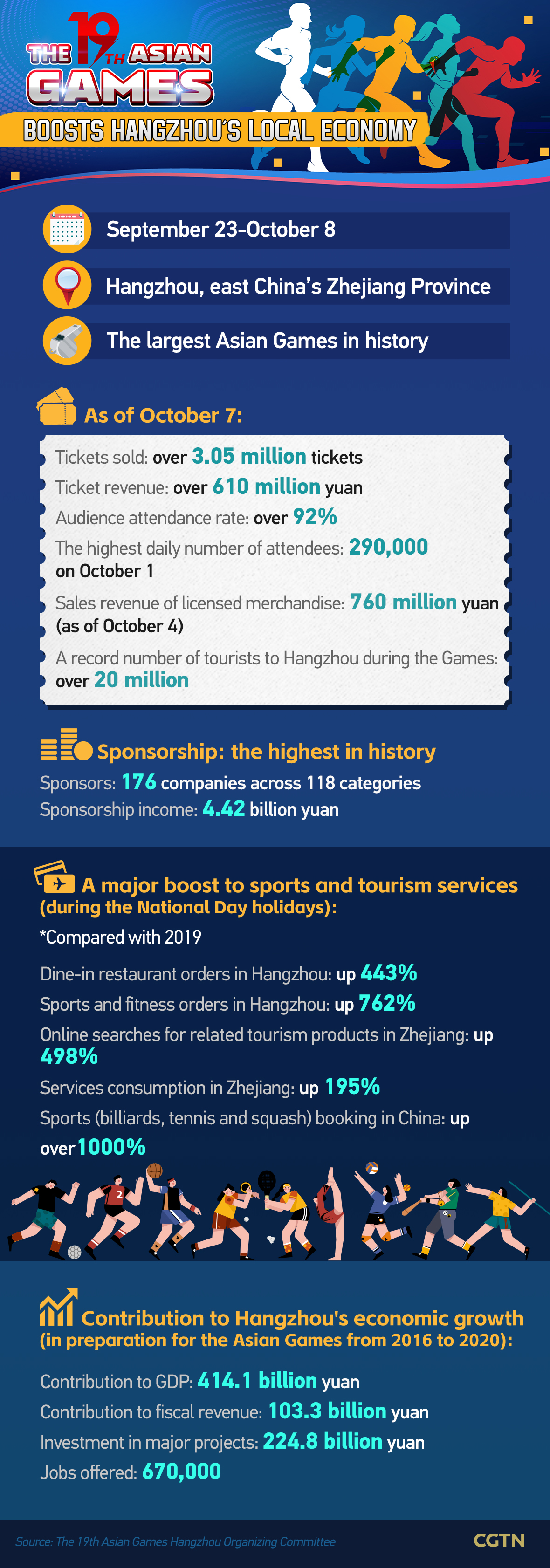The Hangzhou Asian Games, which coincided with China's Mid-Autumn Festival and National Day holiday, has generated a substantial growth of tourism and sports consumption in Hangzhou, east China's Zhejiang Province, and stimulated the local economy.

Taking place from September 23 to October 8, the Games features the largest number of participants in the event's history, with an audience attendance rate surpassing 92 percent. The highest daily number of attendees was recorded as 290,000 on October 1.
Over 20 million visitors have been attracted to Hangzhou during the Games. As of Saturday, over 3.05 million tickets were sold, generating a ticket revenue of over 610 million yuan. Sales revenue of licensed merchandise reached 760 million yuan as of October 4.
The Games is a major boost to tourism and sports consumption during the National Day holiday. Compared with the same period in 2019, dine-in restaurant orders in Hangzhou surged 443 percent, sports and fitness orders in the city shot up 762 percent.
The event also stoke the surrounding region's economy and even the national economy, with services consumption in Zhejiang increasing by 195 percent, and sports such as billiards, tennis and squash bookings in China seeing a sharp rise of over 1000 percent during the holidays.
In preparation for the Asian Games from 2016 to 2020, the Games' contribution to Hangzhou's economic growth was valued at about 414.1 billion yuan, accounting for 7.6 percent of the city's overall growth. The event's contribution to fiscal revenue reached 103.3 billion yuan.
The city also invested 224.8 billion yuan in major projects, including metro lines. Preparations for the event also created around 670,000 jobs, representing 2.4 percent of the total local employment during the same period.
The Hangzhou Asian Games set a new record in terms of both sponsorship income and the number of sponsors. It attracted sponsors from 176 companies across 118 categories, with a cumulative value of 4.42 billion yuan.